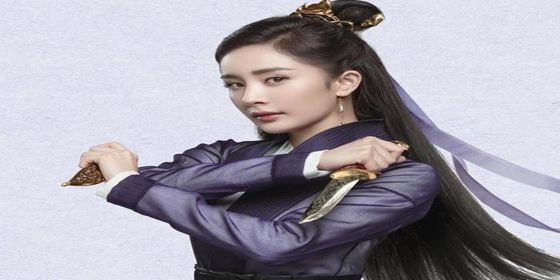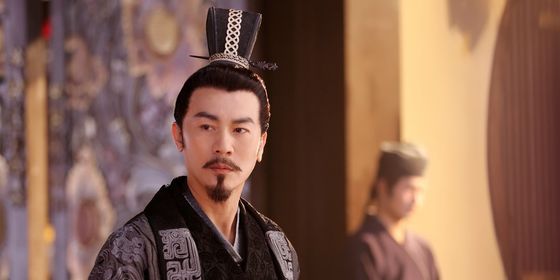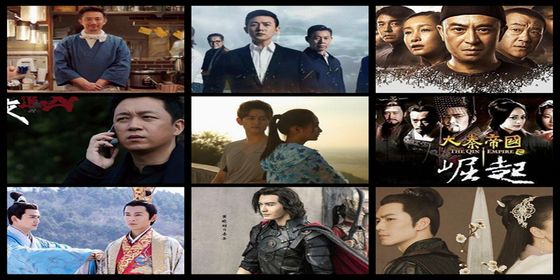Second season of hit drama falls in ratings, gets slammed for materialist message
Back for its second season, last year’s hit young-adult TV drama “Ode to Joy” remains popular among viewers, but its rating on Douban has dropped to 5.2. This is a lower rating than average for China’s usually gushy online arts community, which indicates serious problems with the show’s quality.
The drama features five female characters in their 20s or early 30s, who live on the 22nd floor of Shanghai’s “Ode to Joy” high-rise community. These women come from different social backgrounds but, as the old story goes, are all out to find true love and professional success in the city of dreams.
The characters include three roommates—naive small-town girl Qiu Yingying, middle-class overachiever Guan Ju’er, and Fan Shengmei, the successful but put-upon younger daughter of a chauvinistic family—and two of their neighbors, overseas returnee Andy and heiress Qu Xiaoxiao. The first season of the show followed many plotlines specific to these characters’ divergent social backgrounds, and many online reviews mentioned how the show was like a “magic mirror” in which everyone can see parts of themselves. The characters’ lifestyles, mindsets, values, and personal experiences reflected how the creative team saw young women from different walks of life in today’s China.
The first season also triggered public debate over topics such as the hardships of urban life, the rules of survival in workplaces, family’s influence on people’s personality, and feminism.
When the season ended in May last year, the show’s loyal fans couldn’t wait to see the follow-up. But when the second season aired last month on Zhejiang and Dongfang Television, criticism appeared after just the first episode, because half of it was spent on Andy’s journey in Thailand with a new suitor, making the episode more like a music video or a tourism promotion ad: no dialogue, no plot, just endless stunning scenery and background music.
The story has also become repetitive: In Season 1, Andy broke up with her ex-boyfriend due to her risk of passing a hereditary mental illness; in Season 2, she finds another, younger man, and her “problem” gets between them again. Qiu became depressed after a break-up last season and even lost her job, but recently, she got dumped again and wallowed in many more episodes of sadness. Qu continued her on-and-off romance with her doctor boyfriend, and each time they break up for the exact same reason: difference in social status. And Fan’s story was literally copied from last season, since it’s about her family asking her for money—again. Guan is the only exception, and even her story isn’t particularly original: Like every cliche teen movie ever, she discards her glasses and finds love for the first time.
Audience members have found the prospect of another 55 episodes of the same stories unbearable. What’s more, some have criticized the show for encouraging the worship of wealth, even comparing it with Guo Jingming’s Tiny Times, a film notorious for its materialist message. In “Ode to Joy,” only Andy and Qu, two independently wealthy women, are able to take control of their lives. They have enviable jobs, attract charming boyfriends, and can call in favors anytime from their powerful friends. Meanwhile, the other three girls get constantly dumped on: dealing boyfriend toying with their feelings, loveless family members, and the pressures for getting married and making a living.
One could say, of course, that this is an allegory for the wealth gap in today’s China. However, it’s not clear whether the show is celebrating or criticizing its wealthier characters’ privilege. Its “poorer” characters are not given the agency and dignity of being able to solve problems by themselves. Instead, they are rescued by the wealthier characters and expected to be grateful—even as their rich friends are giving condescending lecture about their helplessness.
Meanwhile, the rich characters’ behavior is always justified: they are never malicious, just straightforward; their disregard for rules shows that they’re innovative; their “selfishness” is just them staying true to themselves. It seems that the showrunners believe only wealthy people deserve happiness and that poverty is a character flaw.
Of course, it’s not the job of a TV drama to deliver progressive social commentary with every episode; however, media doesn’t exist in a vacuum, and this show’s treatment of its characters seems especially tone-deaf. This is why “Ode to Joy” makes so many viewers uncomfortable—and as the Douban rating of 5.2 shows, they’ve come to expect better.
Cover image from bandao.cn












